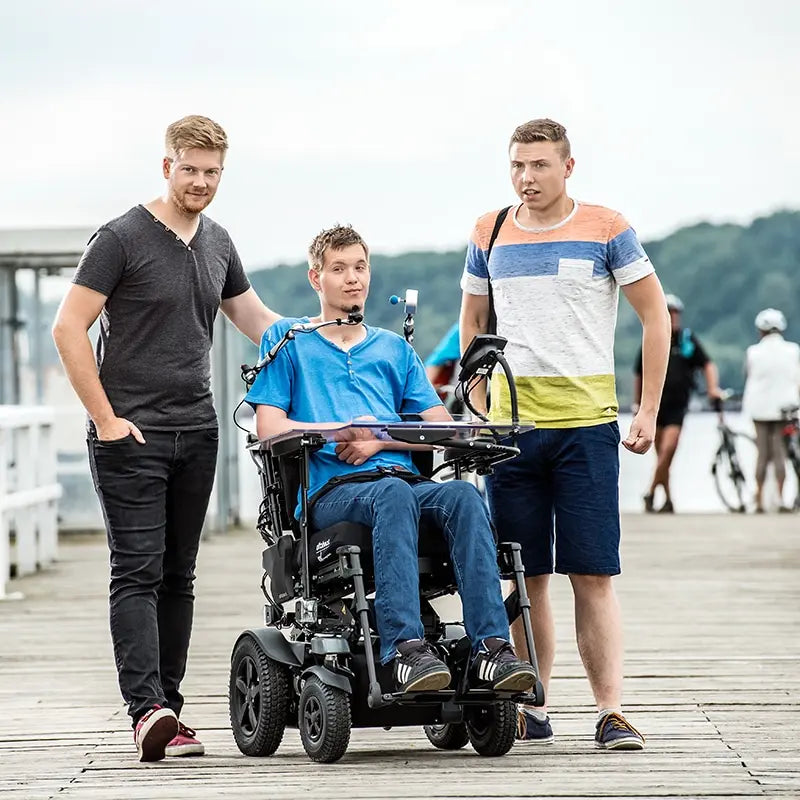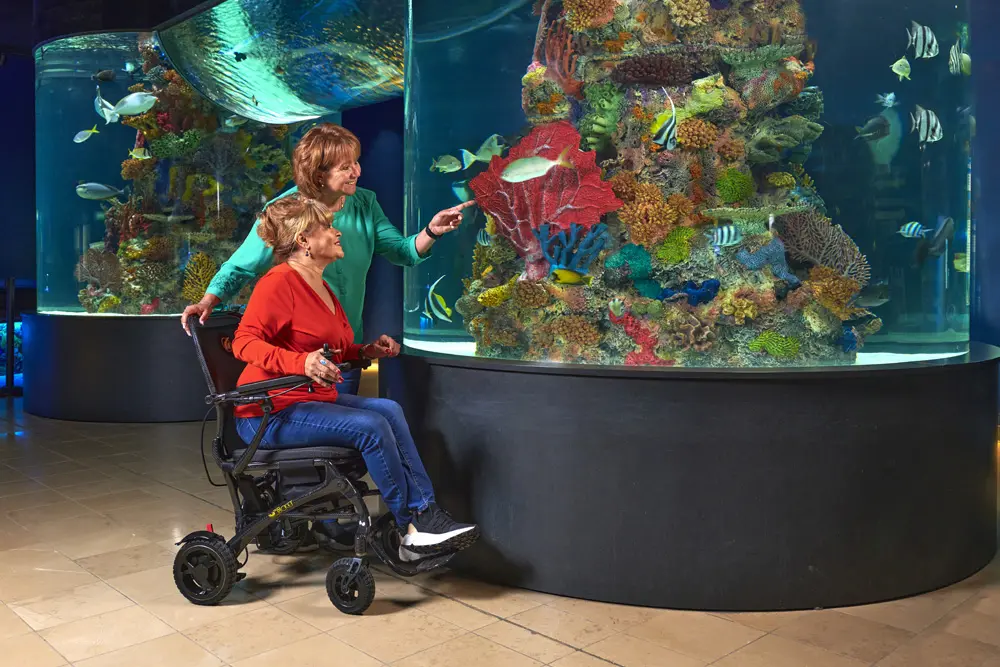
5 Ways Electric Wheelchairs Have Improved the Lives of Millions
Share
In a world where mobility and independence are synonymous with freedom, electric wheelchairs stand out as beacons of hope for millions. These marvels of modern technology have revolutionized the concept of accessibility, granting many the ability to explore the world anew. Dive into how electric wheelchairs have become pivotal in enhancing lives with dignity and ease.
Enhancing Mobility and Independence
Electric wheelchairs revolutionize mobility for individuals facing physical limitations, providing them the independence to move about without the constant need for assistance. Transitioning from manual propulsion to automated transport means users can cover longer distances effortlessly, maintain stamina, and experience the world with a new lens of autonomy.
The psychological boost from this enhanced mobility cannot be overstated. The freedom to navigate spaces independently instills a strong sense of self-reliance, significantly impacting one’s confidence and self-esteem. Electric wheelchairs thus not only facilitate movement but also bolster the users’ belief in their capabilities.
Promoting Social Participation and Integration
Electric wheelchairs play a crucial role in social integration, breaking down barriers that once isolated individuals from participating fully in community life. Access to electric mobility devices enables users to attend social gatherings, participate in community events, and enjoy outings with friends and family without the worry of physical exhaustion or accessibility challenges.
This increased participation fosters stronger relationships and builds a supportive network, essential for emotional and mental well-being. Electric wheelchairs thus serve as a bridge, minimizing the physical distance between individuals and their desire for social connections.
Improving Personal Comfort and Quality of Life
The ergonomic design of electric wheelchairs significantly enhances comfort, crucial for users who spend a considerable part of their day in the wheelchair. Advanced features like adjustable backrests, leg supports, and tilting functions allow for better posture and prevent discomfort during prolonged use.
Moreover, the ability to adjust settings for personalized comfort means that users can tweak their chairs for optimal support, further improving their overall quality of life and well-being. This adaptability makes electric wheelchairs a key tool in not just mobility, but in ensuring day-to-day activities are carried out with greater ease and less pain.
Facilitating Access to Employment and Education
Access to education and employment is significantly enhanced by the use of electric wheelchairs. The ability to independently navigate campuses and workplaces removes a major hurdle that previously limited opportunities for individuals with mobility challenges.
Electric wheelchairs empower users to pursue careers and education without being overly burdened by their physical limitations, thereby fostering a sense of purpose and contributing to personal and professional growth. This not only benefits the individual but enriches society by including diverse perspectives in workplaces and educational institutions.
Advancements in Technology Making Wheelchairs Smarter
The continuous advancements in technology have led to the development of smarter, more intuitive electric wheelchairs. Features such as GPS navigation, programmable controls, and obstacle detection systems enhance user safety and provide a more seamless, worry-free navigation experience.
Looking Ahead: The Future of Mobility
The journey through the incredible benefits of electric wheelchairs underscores their transformative impact on lives globally. By amplifying mobility, fostering social inclusion, elevating personal comfort, and enabling participation in education and employment, these devices have redefined what’s possible for individuals with mobility challenges. As technology continues to evolve, the future for users of electric wheelchairs shines even brighter, promising even more freedom and opportunities to engage with the world on their own terms.

